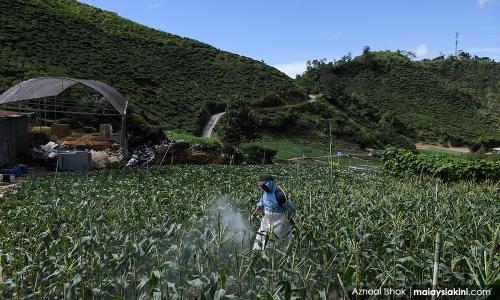How agriculture policy led M'sia down path of food insecurity
As the global food system shudders with every blast that strikes Ukraine, cracks have started forming in Malaysia’s food security landscape, exposing policies that prioritise cash crops over food cultivation, experts said.
Disjointed agriculture policies over the years, monopolies in local production and imports, and research-deficient agricultural practices are likely factors that led to Malaysia’s food insecurity today.
Describing the pre-independence economy to be largely extractive of the country’s natural resources, Universiti Putra Malaysia Institute of Tropical Agriculture and Food Security research fellow Fatimah Mohamed Arshad said Malaysia’s economy remained largely agrarian until the country started diversifying in the 1970s.
“But we have to thank them for bringing rubber trees from Brazil and oil palm from Africa,” the professor quipped, explaining that the country’s coloniser’s commodity-dependent economy initially flourished on rubber and tin.
Since then, she said, the country’s agricultural efforts have been lopsided to favour cash crops, epitomised in monocrop oil palm plantations across 80 percent of the country’s agricultural land...
RM12.50 / month
- Unlimited access to award-winning journalism
- Comment and share your opinions on all our articles
- Gift interesting stories to your friends
- Tax deductable
